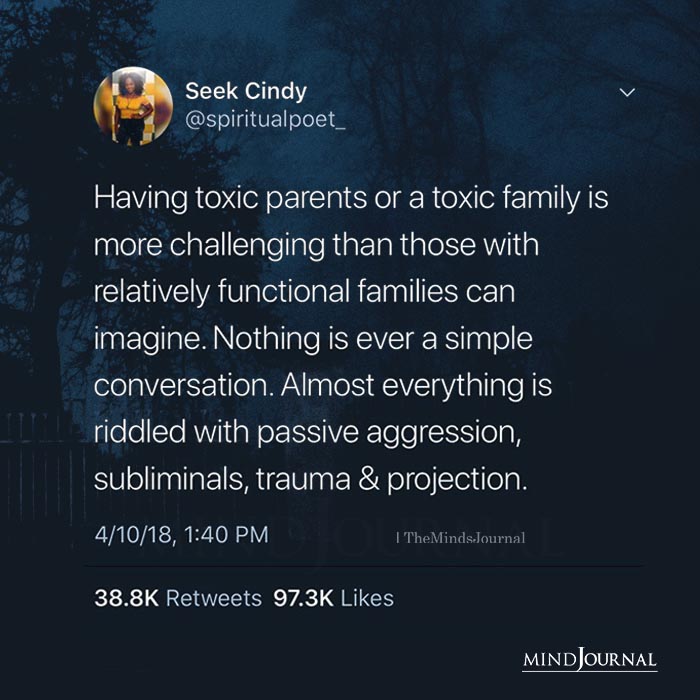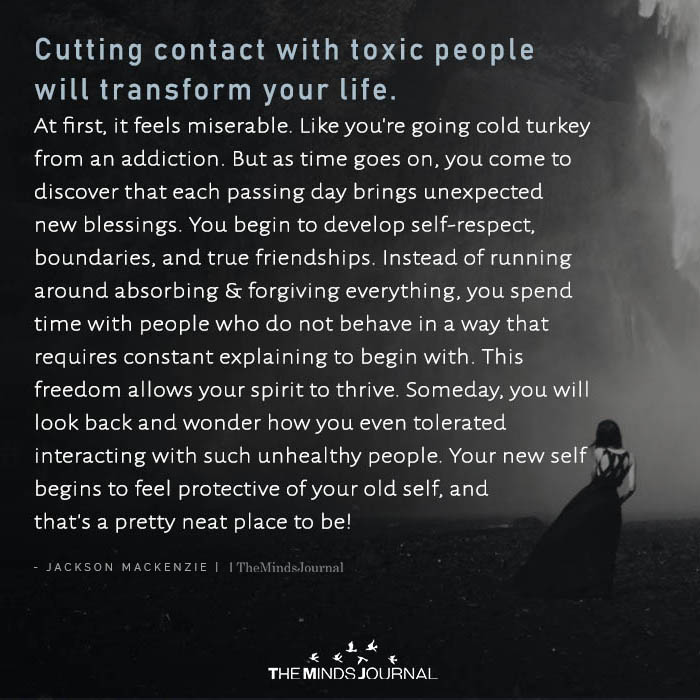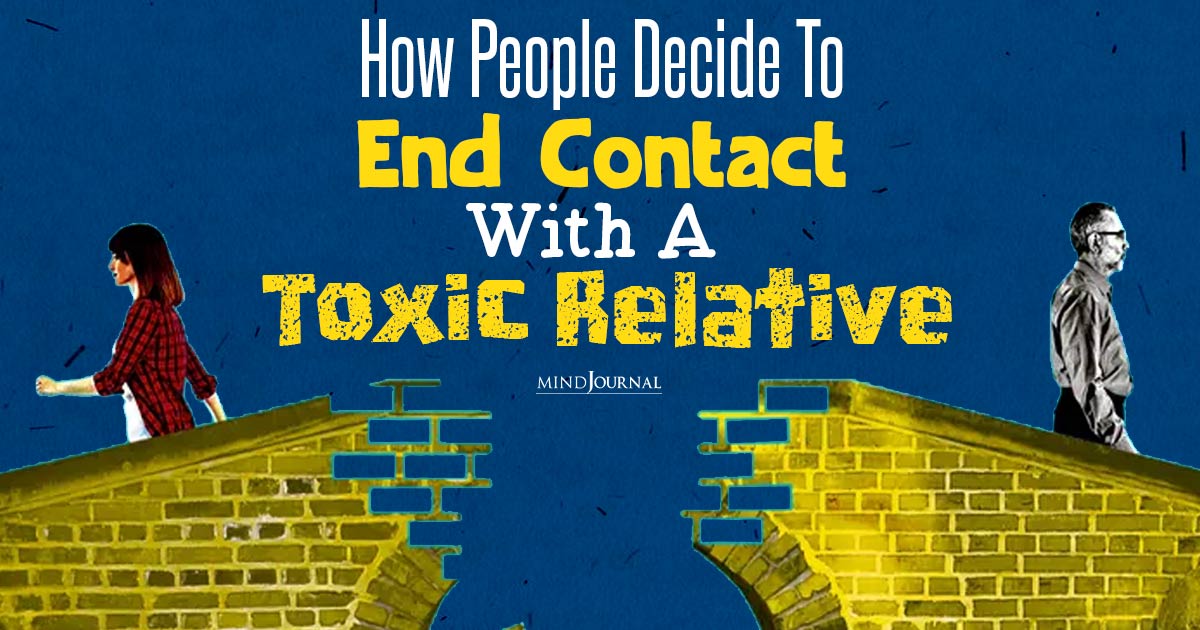Going no contact with a family member is probably one of the hardest things you will ever have to do in your life. However, sometimes the most important steps are the hardest to take. When you choose no contact, you are choosing to prioritize your emotional and mental well-being. This post is going to talk about how going no contact with family is done and what are the important steps to take.
Key Points:
- Family members may choose no contact due to abuse, neglect, mental illness, or drug and alcohol use.
- When choosing no contact, it may be necessary to take certain measures for protection.
- Relatives may press a child to leave an abusive partner, but insist the estranged repair rifts in the family.
No contact with a family member means cutting off the relationship, neither offering nor allowing any communication or interaction whatsoever. It is a decisive step taken to end physical, psychological, or emotional suffering at the hands of an abusive sibling or other family member. As a tactic to protect oneself from continual hurt, it is generally the last resort.
Marcy Steuben, 43, of Pittsburgh, has terminated relationships with all three of her siblings. One brother is an alcoholic, her half‐brother is in prison, and her adoptive brother is violent.
“If I did something unacceptable,” she says, “I would expect to be cut off and would do the same in return. My parents are estranged from them, too. All the estrangements were caused by a fundamental unwillingness by myself and my parents to allow people to use and abuse us.”
Most people who choose no contact feel they have no choice; they have exhausted all other options. Here are a few comments from a survey I conducted:
- My brother had a serious drug problem that ruined our family. He could not be trusted, and he refused treatment. He drained the family emotionally and financially, so I had to cut him out of my life.
- She is a narcissist who has bipolar disorder. My therapist recommended I go “no contact” for my own well-being. At first, I had a lot of trouble going no contact. I wished I had a sister. Not anymore.
- I can’t take it anymore. She’s part of many broken, twisted memories that I want to forget. I mourn the idea of a close family and sibling, but I’m happier without her. I did this for my own sanity.
Related: How Adults Can Get the Distance They Need from Toxic Families
Why it’s necessary to choose no contact
In an article for the CPTSD Foundation, Shirley Davis identifies reasons to choose no contact and the pros and cons of that decision.
Many choose to terminate a relationship with a family member for a variety of reasons, including:
- Lifelong abuse or neglect
- Continued dysfunction
- Betrayal
- Mental illness
- Lack of respect
- Drug or alcohol abuse
- Religious differences
- Political differences
- Moral disagreements
- Criminal behavior
- Reckless or dangerous behavior
- Narcissistic behaviour
- Refusal to acknowledge and or apologize for unacceptable behaviour
- Lack of reciprocity in the relationship
- Disrespect toward a spouse
- Intrusive, overbearing, and undermining behaviour
- Playing favorites with adult siblings
- Ignoring boundaries
- Financial disputes
- Criticizing, belittling, or ridiculing behaviours
- A lack of skills to resolve conflicts
When considering no contact, it may be valuable to weigh the pros and cons of the situation.

How people choose to go no contact with a family member
Davis’s list of pros:
- Peace
- Stability
- Freedom
- You can finally heal
- You respect yourself more and feel you are living authentically
- Your self-esteem and self-confidence improve
- You feel a sense of self-control, self-reliance, and agency
Davis’s list of cons:
- Grieving the sibling as well as the sibling you wish you had
- Feelings of guilt
- Feelings of remorse
- Backlash in the family
- Retaliation from the estranged
- Loneliness
- Depression
- Anxiety
It’s likely that relatives and friends will try to persuade and pressure family members to maintain relations.
Expect to hear some of the following enabling statements:
- “It’s just how she is.”
- “He’s getting old.”
- “Can’t you just hang in there?”
- “It’s not like you have to live in the same house as them.”
- “Nobody’s perfect.”
- “You’re too sensitive.”
- “He didn’t mean it that way.”
- “You only have one mother, father, brother, sister.”
- “Can’t you take a joke?”
- “You need to learn to let things go.”
- “There are two sides to every story.”
- “Why can’t we all just get along?”
- “You shouldn’t have made him angry.”
- “Be the bigger person.”
Related: 10 Tips To Deal With Toxic Family Members Without Losing Your Mind
How to maintain no contact with a relative
After making the difficult choice of no contact, a family member might consider these steps to act on the decision:
- Block your estranged relative from all social media accounts and block the social media accounts of anyone who’s in this person’s inner circle.
- Block the person’s cell phone number.
- Beware of well-intentioned family members who may share personal information. Set boundaries, insisting that you aren’t comfortable with this discussion.
- Add security and two-step authentication on online accounts or apps, to secure all accounts.
- Let a trusted person know about the cut-off for support or have someone who can step in, if necessary.
- Feel the uncomfortable feelings—anger, sadness, and guilt of cutting off—and acknowledge those feelings to work through them.
- Note how you feel and whether you live more comfortably without the difficult relative in your life.
- Focus on yourself; prioritize your own personal well-being above all else.
Choosing no contact doesn’t have to be forever. After time has passed, someone who has chosen to cut off may feel steadier and may even choose to reach out again.

It’s also important to know that maintaining distance can be more difficult than establishing the cut-off in the first place. Families who might support ending an abusive relationship with a spouse or partner often pressure their own estranged members to repair rifts within the family, even if the relationship has been abusive.
And be aware that, whenever the holidays roll around or a relative gets married or dies, the estranged are forced to re-evaluate the decision to have no contact.
Fern Schumer Chapman is the author of several books, including Brothers, Sisters, Strangers and The Sibling Estrangement Journal. She offers one-on-one coaching sessions to those struggling with sibling estrangement issues. Contact her at fernschumer@gmail.com.
References:
Davis, Shirley, (Jan 30, 2023) CPTSDfoundation.org, Family Estrangement: Going No Contact Rainne, S. (July 21, 2020) https://www.supportiv.com/healing/go-no-contact-nc-without-guilt NC: How To Go No Contact Without Guilt
Written By Fern Schumer Chapman Originally Appeared On Psychology Today










Leave a Reply